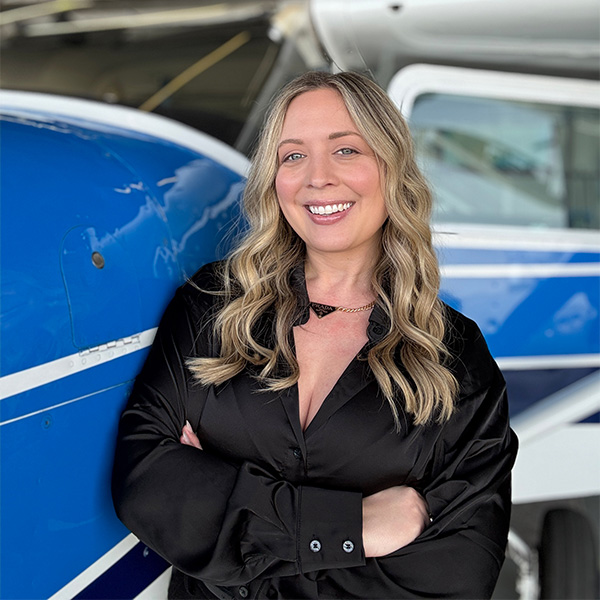Airlines hike pilot pay
Pilot demand at record levels, flights canceled
The ongoing global shortage of airline pilots means airlines are working harder than ever to compete for talented pilots.
The hiring numbers speak for themselves, as 2022 emerged as the best year on record for pilot hiring among the 12 major airlines.
“Combining our new pilot wage scales with our previously-announced pilot Retention Bonus over five years, this transformative approach to pilot compensation makes Envoy pilots the highest paid in the regional airline industry and peers at national, LCC, ULCC and cargo carriers,” Envoy Air said in the announcement.
Pilots from both airlines will get 50-percent pay premiums through August 2024 as well as a commitment to a five-year flow to American Airlines. Pilots who do not transition to American Airlines after completing five full years will move to top of scale captain pay.
United Airlines will increase pilot pay by 14 percent and offer paid maternity leave under a new deal that United pilots have until July 15 to ratify, Reuters reported. That contract, the first agreement with a major airline, is expected to set the bar for negotiations to follow between other air carriers and their pilots.
Tim Genc, chief advisor and executive editor at Future and Active Pilot Advisors (FAPA), said, “The aviation industry continues to struggle with an answer to the pilot supply question. We have some airlines cancelling flights and parking aircraft, while others are adding additional facilities or new bases to their pilot training department.”
NBC Nightly News recently reported that American Airlines has been forced to ground almost 100 regional jets. “We don’t have the pilots that we need to fly a full regional schedule,” Robert Isom, American Airlines CEO, said during the Bernstein Autonomous 38th Annual Strategic Decisions Conference 2022.
Passengers aren’t the only ones affected by the growing number of flight delays and cancellations. On June 22, more than 1,300 off-duty, uniformed Southwest pilots picketed outside of Dallas Love Field Airport to demand better working conditions and more adequate pay.
The pilots union told NBC News in a statement, “The Pilots of Southwest have been in contract negotiations with the company for more [than] two years with no meaningful movement toward a new contract ... pilot fatigue rates have reached an all-time high.”
The Allied Pilots Association told NBC Nightly News that “many airlines encouraged pilots to retire early during the pandemic, not expecting the sudden surge of returning passengers and more Covid sick cases.” Dennis Tajer, Allied Pilots Association communications committee chairman, said, “Management teams did not plan for this; they were caught on the backside of the pandemic, demand was powerful, and they were not ready.”
In April, Republic Airways Inc. filed a Petition for Exemption from FAR 61.160 (a) seeking a waiver on the 1,500-hour rule for pilots and has since been met with a frosty reception. Citing the Colgan Air Flight 3407 crash and a stellar safety record since the introduction of the Airline Safety and Federal Aviation Administration Extension Act of 2010, the Flight School Association of North America said, “FSANA is absolute in its opposition to the petition for exemption being requested by Republic. Since this request has become public, Captain Sullenberger and the ALPA have also come out against the exemption. A FSANA recent survey sent to industry indicated that 78 [percent] of the respondents were opposed to Republic’s petition.”
Mesa Air Group announced on June 8, “effective immediately Mesa Airlines pilots participating in United’s Aviate career development program are now able to earn service credit, and count prior service, towards their United transition for flying across all of Mesa’s operations, including American Eagle.”
Rumors of an internal memo at FedEx that stated the company plans to drop its four-year degree requirement have also flooded the internet. Genc said, “According to our contact at FedEx, they have NOT changed their 4-year degree requirement. Apparently, someone released an internal memo discussing options. Not saying it won’t change in the near future, but it’s not yet a certainty.”
Airlines aren’t the only ones getting involved in the pilot supply dilemma. Sen. Lindsey Graham (R-S.C.) told Bloomberg last month that he is considering legislation that would raise the mandatory retirement age for airline pilots.
Sam Scanlon, managing partner at JSfirm.com, said that airline hiring is having the usual effect of drawing potential applicants away from corporate, charter, flight instruction, and other professional flying jobs. “Our top three flying jobs remain Airline Pilots, 135 Corporate Charter, and Helicopter particularly EMS. It’s difficult to pick the top three non-flying jobs. Maintenance, Avionics, Management remain close to the top. JSfirm.com does have another rapidly growing category which is Flight Nurses/Paramedics.”
For pilots hoping to learn more, FAPA’s July 16 Pilot Job Fair and Future Pilot Forum in Philadelphia will feature airlines, private aviation companies, professional flight schools, and aviation organizations.




